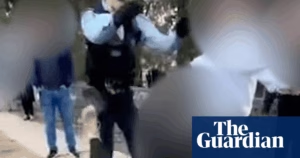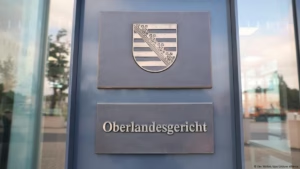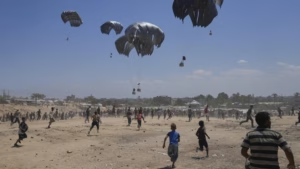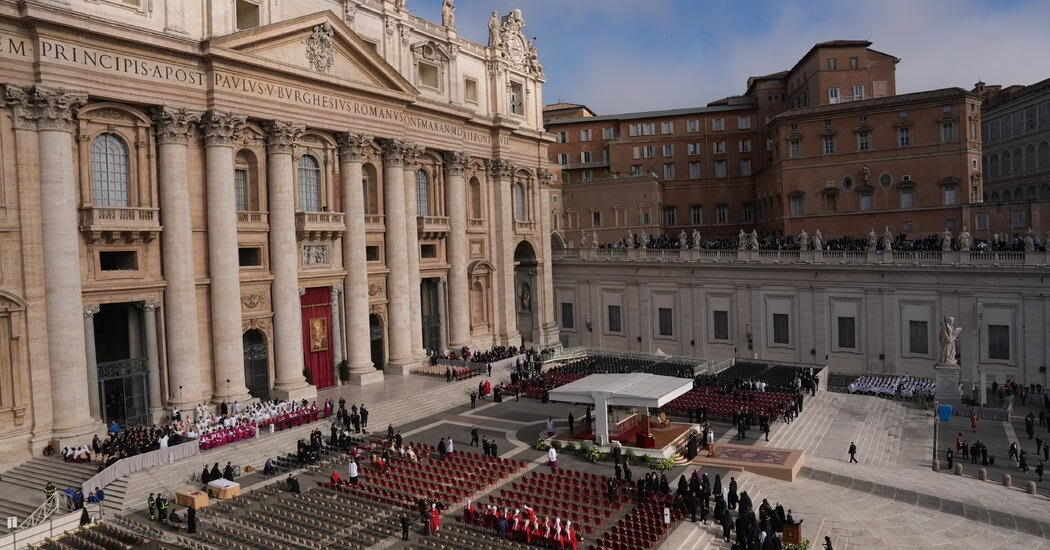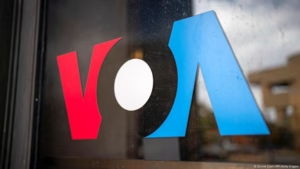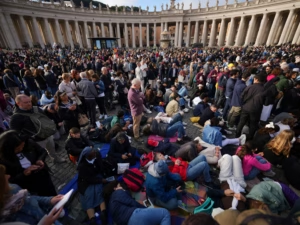Pope Francis was born Jorge Mario Bergoglio on December 17, 1936, in Buenos Aires to Italian immigrant parents. As a boy, he showed intelligence, deep religious devotion, and a love for dancing the tango. At age 16, he experienced a religious calling while entering the Basilica of St. Joseph in Buenos Aires. This led him to join a seminary and pursue a path in the church. In 1969, he was ordained as a priest for the Jesuit order.
Father Bergoglio became the head of the Jesuits in Argentina during a period when the country was undergoing a “dirty war” with a military junta targeting dissidents, resulting in the deaths of up to 30,000 people. He faced accusations of not doing enough to protect two priests with antigovernment views who were kidnapped and tortured, though he has denied these claims, stating he acted to protect priests and others by influencing military officials privately.
In 1979, Bergoglio’s tenure as head of the Jesuits concluded controversially, with claims of an autocratic leadership style, leading to his de facto exile in Frankfurt, Germany, and later to Córdoba, Argentina.
In 1992, Bergoglio was unexpectedly named an auxiliary bishop of the Buenos Aires diocese, becoming archbishop six years later. He focused on ministering to the poor and was elevated to cardinal in 2001.
In 2013, Bergoglio was elected pope, becoming the first Jesuit and Latin American pontiff. He endeavored to shift the Catholic Church’s focus away from contentious issues like abortion and homosexuality towards climate change, economic and social inequalities, and migration. His first papal trip was to Lampedusa, an Italian island that had become a focal point for asylum seekers and migrants.
Pope Francis established a commission in 2014 to address clerical sexual abuse scandals within the church. This commission aimed to hold bishops accountable but eventually dissolved. The same year, his diplomacy played a key role in the United States and Cuba restoring diplomatic relations. In 2015, he issued “Laudato Si,” a papal encyclical addressing environmental issues and the effects of capitalism on the poor. He also became the first pope to address the U.S. Congress.
In 2016, tensions arose with then U.S. presidential candidate Donald Trump over immigration policies. The pope later sought to improve relations with other religions, including a trip to Egypt in 2017 to foster dialogue and an agreement with the Chinese government in 2018 to address a longstanding struggle over bishop appointments.
In response to the global sexual abuse crisis, Francis issued the most comprehensive Vatican action plan in decades in 2019, obligating church officials to report abuse cases, but not to civil authorities, a move that angered victims.
In 2022, he apologized to Canada’s Indigenous peoples for the abuses and cultural erasure in residential schools run by the church. In 2023, he held a meeting of
Source: https://www.nytimes.com/live/2025/04/26/world/pope-francis-funeral
